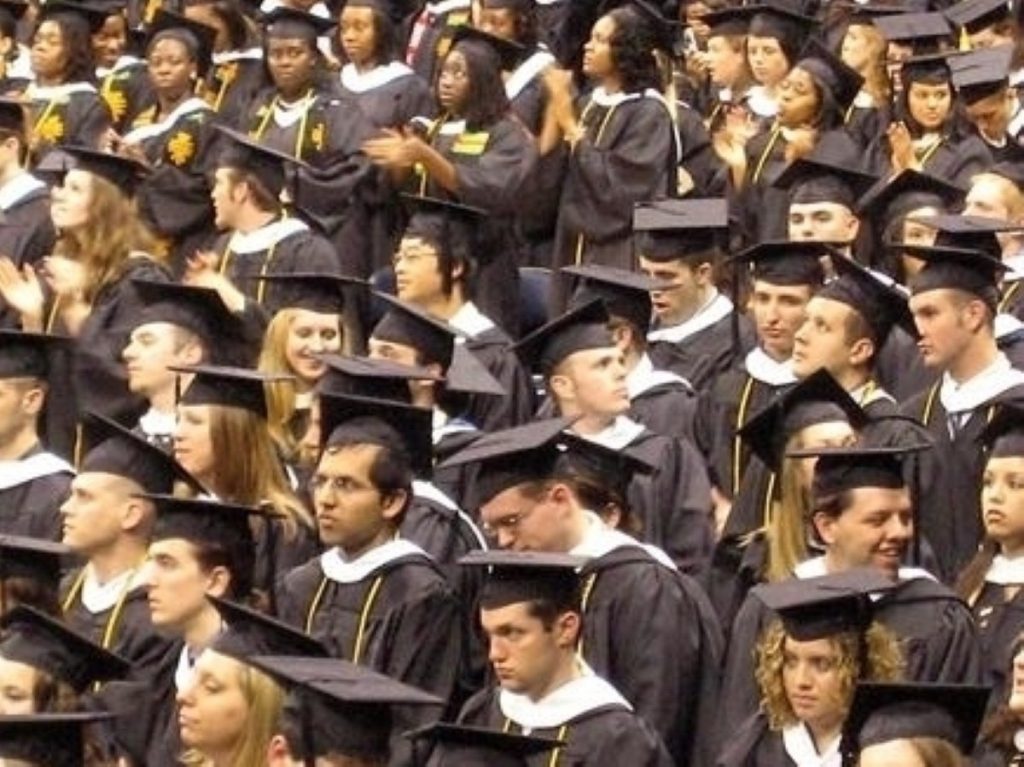Overseas students targeted as immigration begins to fall
Up to two thousand overseas students face deportation within 60 days after officials banned the London Metropolitan university from teaching them.
Confirmation that the UK Border Agency has revoked the London Met's highly trusted status, meaning its international students are not permitted visas to study in the UK, came as new figures showed the government was beginning to make progress on its goal of cutting back on immigration.
Although a "special task force" has been established to help as many of the London Met's affected students find courses elsewhere in the UK, many will be fearing a forcible removal from the country by the end of October.
"It is disgusting that international students continue to be used as a political football by politicians who seem either incapable of understanding, or are simply uncaring about the impact of their decisions on individuals, universities and the UK economy," the National Union of Students' president Liam Burns said.


Initial reports of the revocation emerged at the weekend in a Sunday newspaper. Afterwards London Met said it had been seeking to liaise with the UKBA, which it said had been focused on "processes related to the legacy of previous management", but claimed to have been ignored by the agency.
"The implications of the revocation are hugely significant and far-reaching, and the university has already started to deal with these," vice chancellor Malcolm Gillies said.
A quarter of students at the university were not permitted to be in Britain at all. There were no records of course attendance for over half of the students, while some did not possess the minimum English language levels required by the government.
"Academic institutions like every other institution need to obey the law," immigration minister Damian Green said.
He dismissed Burns' criticism as "just a piece of rhetoric", calling the London Met revocation "a one-off situation".
Universities UK and the Higher Education Funding Council for England have begun helping London Met's affected students find places.
But the NUS has warned the move will deter many would-be international students, whose higher fees are vital for higher education's business models, from looking to study in the UK.
"Politicians need to realise that a continued attitude of suspicion towards international students could endanger the continuation of higher education as a successful export industry," Burns added.
"This heavy-handed decision makes no sense for students, no sense for institutions and no sense for the country. This situation and the botched process by which the decision was arrived at could be avoided if international students were not included in statistics of permanent migrants."
'The oil tanker has turned around'
Immigration figures released today showed that the government was finally beginning to reduce net migration to the UK, leading Green to restate his goal of cutting net immigration to the tens of thousands by 2015.
Estimated long-term total immigration to the UK in the 12 months to December 2011 was 566,000, according to the Office for National Statistics. That is significantly down on the 591,000 in the year to December 2010 and is the first major fall since 2004.
Study remains a critical part of the immigration mix, accounting for 232,000 arrivals in the year to December 2011. But that is broadly unchanged on the previous 12 months, suggesting that the government may have reached the limit of its crackdown on other areas of immigration – and could struggle to continue its goal of cutting immigration to under 100,000 by 2015 as a result.
Shadow immigration minister Chris Bryant questioned whether the government was taking action against London Met because of the limited progress of the immigration figures.
"It seems very convenient that this decision should be announced as once again, the quarterly immigration figures show that the government's policies are having limited impact on numbers," he commented.
"Instead of empty rhetoric we need straight talking on immigration, we need action not empty promises."
Green insisted that the government's unpublished figures for 2012 suggested the downward trend would continue, however.
"This process is like turning around an oil tanker that is steaming very fast in the wrong direction," he declared.
"We set the target of getting immigration down to the tens of thousands over the whole parliament.
"This quarter's figures for the end of last year are the first tangible sign that that's beginning to happen."
The centre-left think-tank IPPR warned earlier this summer that international students should be cut out of immigration figures altogether.
Only 15% of overseas students remain in the UK on a permanent basis, but including them in general figures means immigration statistics can be reduced by focusing on this easy-to-track group.
Some have predicted reducing the number of international students by 50,000 per year would cost Britain up to £3 billion.









